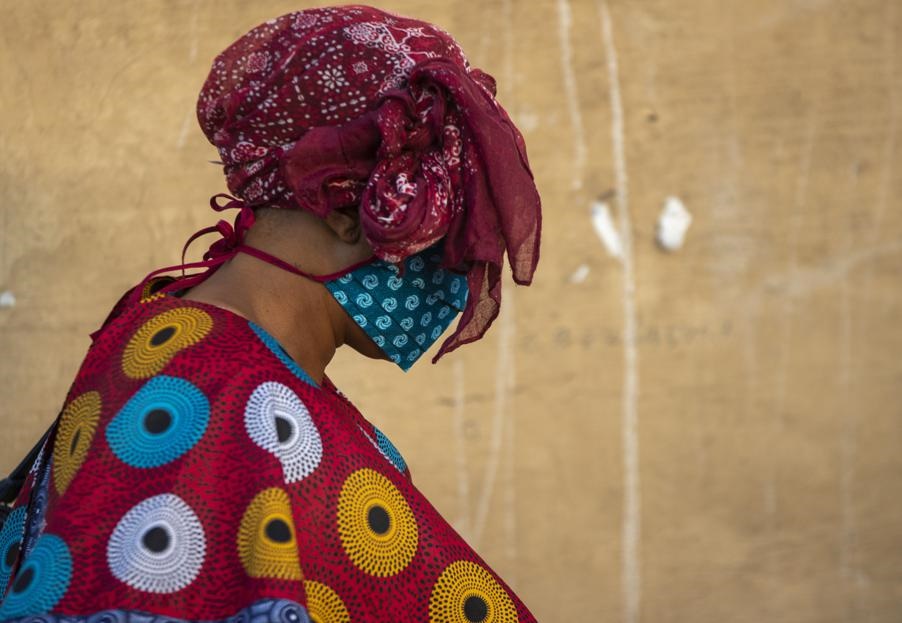
As the country intensifies its efforts to curb the spread of Covid-19 using mass screening and testing, stigma in some communities threatens to derail these efforts. Luvuyo Mehlwana reports on the situation in the Eastern Cape.
In the middle of March, Nelisa Jonas attended the funeral of a retired nurse in KwaDwesi township in Nelson Mandela Bay in the Eastern Cape. Soon after, a number of Covid-19 coronavirus infections in Nelson Mandela Bay were traced back to this funeral.
Due to the fact that Jonas went to the funeral, she had to get tested.
Jonas has told a local radio station that she lived in fear after her name was linked to the funeral. She said that people received messages via social media cautioning them to stay away from her because she either tested positive or she was refusing to be tested.
Jonas said when she saw messages from the department of health encouraging those who had been at the funeral to get tested, she went to Motherwell Community Health Centre to get the test.
Before she received her results, she says her name had been circulated on social media.
“The department informed me that I tested negative, but no one is taking responsibility for how my name landed up on social media. The community had not taken the news well and people are not comfortable with having me around because they believe I will pass the virus on to them,” Jonas said.
Solutions and constraints
Thembisile Nongampula, the deputy chairperson of the Treatment Action Campaign in the Eastern Cape, says that the lessons learnt during the fight to destigmatise HIV/Aids in South Africa could be helpful in addressing the stigma surrounding Covid-19.
“The best way to deal with stigma is to use the best remedy we applied during our struggle against HIV/Aids – community mobilisation.
“As an organisation, however, we understand that the threat posed by Covid-19 is totally different because it is highly contagious and needs us to mobilise in ways we are not used to. Nonphysical engagement is the primary form of mobilisation.
“For instance, radio and social media can be used to educate communities and extend the message. One of the things that will make it more practical is to have those who already recovered from Covid-19 be the face of hope for those still having doubts about the virus,” he said.
Traditional leader Nolundi Meji from Port St Johns told Spotlight there was a lot of stigma surrounding the virus because people did not understand it yet.
“Our people still have little knowledge of this pandemic, and we can’t call public meetings as traditional leaders to educate them more about the danger of stigmatisation because of lockdown regulations,” she said.
“We’ve noticed that, after mass screening and testing has been conducted and someone has tested positive, people from the department of health came to the infected people’s houses in the villages to pick them up and take them to be quarantined. As soon as the neighbours find out about their statuses, they are subjected to victimisation and insults. I don’t understand why people are being victimised for having this virus, as if having this virus is a death sentence. People are recovering, so I don’t see any reason for discriminating against each other,” said Meji.
Nceba Magoxo, deputy chairperson of District A (Uitenhage and Dispatch) health forum in Nelson Mandela Bay, agreed: “The root cause of stigmatisation among people is panic, which is caused by a lack of knowledge about this virus. “Unfortunately for us clinic committees, we are unable to go door to door and educate people about the danger of stigma because we have not been issued with permits that will allow us to move around.”
Post-recovery support needed
Professor Francis Hyera, head of the public health department at Walter Sisulu University in Mthatha, says the stigma is associated with insufficient knowledge and proper understanding of the disease itself.
“People need to acknowledge and accept that Covid-19 is a worldwide pandemic that affects anyone, regardless of race, culture, age or financial status. Community education that involves ward councillors, religious leaders, traditional leaders and prominent village leaders is very important.”
This, Hyera said, must include education on the means of transmission, prevention, control, monitoring and support to demystify the disease at community level.
“Communities should be encouraged to test for their health and the health of their loved ones to control the pandemic. Testing should be taken as a positive means of combating the Covid-19 pandemic within the country.”
He said it was also important that patients were well supported and received counselling.
Eastern Cape health department spokesperson Sizwe Kupelo told Spotlight that the department had noted with great concern the amount of stigma surrounding Covid-19 in the province.
“We have created a number of education campaigns, such as radio ads and the distribution of flyers, to address this issue of stigma. We need more people to be tested so that they will be treated should they test positive. We need everyone to play their part in helping to curb the spread of this virus instead of fuelling the stigma around this pandemic,” said Kupelo.
*Spotlight is published by Section27 and the Treatment Action Campaign, but is editorially independent, an independence that the editors guard jealously. Spotlight is a member of the SA Press Council.
*This article was produced by Spotlight – health journalism in the public interest.




 Publications
Publications
 Partners
Partners









